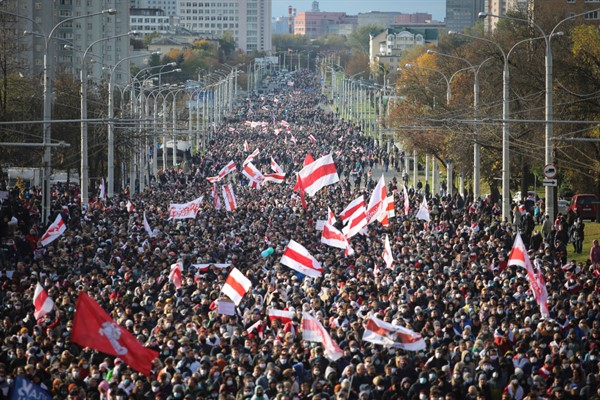Just over six months ago, Alexander Lukashenko, the authoritarian ruler of Belarus, was declared the winner of a presidential election. Like others before it, the outcome of the Aug. 9 vote was not in question—official results showed Lukashenko winning just over 80 percent of the ballots despite widespread reports of voter fraud and the violent suppression of opposition supporters.
What happened next, though, was unprecedented. In the weeks and months after the rigged election, huge masses of people took to the streets of Minsk and other cities across Belarus to demand Lukashenko’s resignation, as well as the release of all political prisoners. The scale of the rallies has ebbed in recent months, but a core group of protesters has braved Lukashenko’s brutal security apparatus, as well as the bitter winter cold, to continue regular demonstrations.
This week on Trend Lines, WPR’s Elliot Waldman is joined by Dan Peleschuk, a freelance journalist and WPR contributor based in Kyiv, Ukraine, to discuss what might be next for Belarus’ protesters. Peleschuk was imprisoned for two days while trying to cover the protests last summer in Minsk, and wrote about that experience for BuzzFeed News. Click here to read a partial transcript of the interview.
Listen:
Download: MP3
Relevant Articles on WPR:
How Russia’s Putin Could Respond to the Protests in Belarus
‘It’s Not Normal for Belarus.’ Lukashenko Faces Growing Pre-Election Protests
Making Sense of the Arrest of Russian Mercenaries in Belarus
Is Russia’s Pressure on Belarus Putting It in Play for the West?
Trend Lines is edited by Peter Dörrie, a freelance journalist and analyst focusing on security and resource politics in Africa. You can follow him on Twitter at @peterdoerrie.
To send feedback or questions, email us at podcast@worldpoliticsreview.com.




